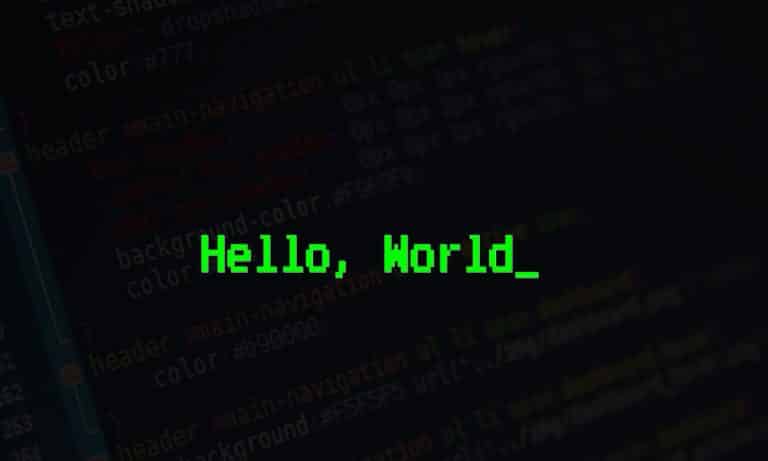There are various ways of categorizing or differentiating programming languages. In this post, am going to focus on general-purpose and its nemesis; domain-specific programming languages. What do the two terms mean? What are the differences between them?
Well, am going to answer these questions. By the end of the post, you will be able to draw a clear line between general-purpose and domain-specific programming languages.
General-purpose programming
General-purpose programming languages are designed to write software that will be used to solve a wide range of problems. They have several application domains. They are known as general-purpose because they are designed not to solve any specific problem. Instead, they cover a wide range of problems.
Sometimes, general-purpose programming languages are referred to as text-based programming. This is because programmers need to type texts, numbers, and symbols when coding. These languages also use a formal syntax.
General-purpose programming languages are further divided into two types:
(I) General purpose markup languages; This is a markup language that is used for more than one purpose but usually for making structures. Some of these languages include XML and HTML.
(II) General-purpose modelling; These type of general purpose programming languages are used to create a representation of a system. One such language is Unified Modelling Language (UML)
Domain-specific programming languages
A domain-specific programming language or special-purpose is the one that is specially designed for a particular application domain. It can only be used to solve a particular problem. You cannot use such a language to solve a problem that does not fall within its domain.
Examples of special-purpose programming languages include LISP and Prolog. These two languages are specially designed for artificial intelligence purpose. SQL is a domain-specific programming for database manipulation.
So, what are some of the differences? Stay put. We are going to outline key areas where GPLs and DPLs differ.
Semantics
Domain-specific programming languages have a precise semantic that is meant to address specific issues. They have certain properties that are well-suited for certain problems. Special-purpose languages are very specific and offer the necessary abstractions and notations. They are also easier to use especially when solving specific problems.
On the other hand, general-purpose languages are very open. They rarely support domain-specific notation. GPLs lack precise semantics.
Software process
General-purpose languages are well-established in a software development process. They have common characteristics that are familiar to most software engineers. For this reason, they can easily fit in a software life-cycle.
On the other hand, it can be very technical to integrate special-purpose programming language into a software development life-cycle. As a software developer, you need to ensure that there is a specific problem that will only be solved by that particular programming language. You may need to get an expert in a particular domain to integrate a DSL into a software life-cycle. However, they still have a special place in a software engineering process.
Support
One reason why programmers love GPLs is they are easily supported by third-party libraries and APIs. On the other hand, DSLs lack third-party support and promotions. This explains why they are shunned by most programmers.
As you can see, there is a line between general-purpose and special -purpose programming languages. However, they can still be used together in developing a complete software.

